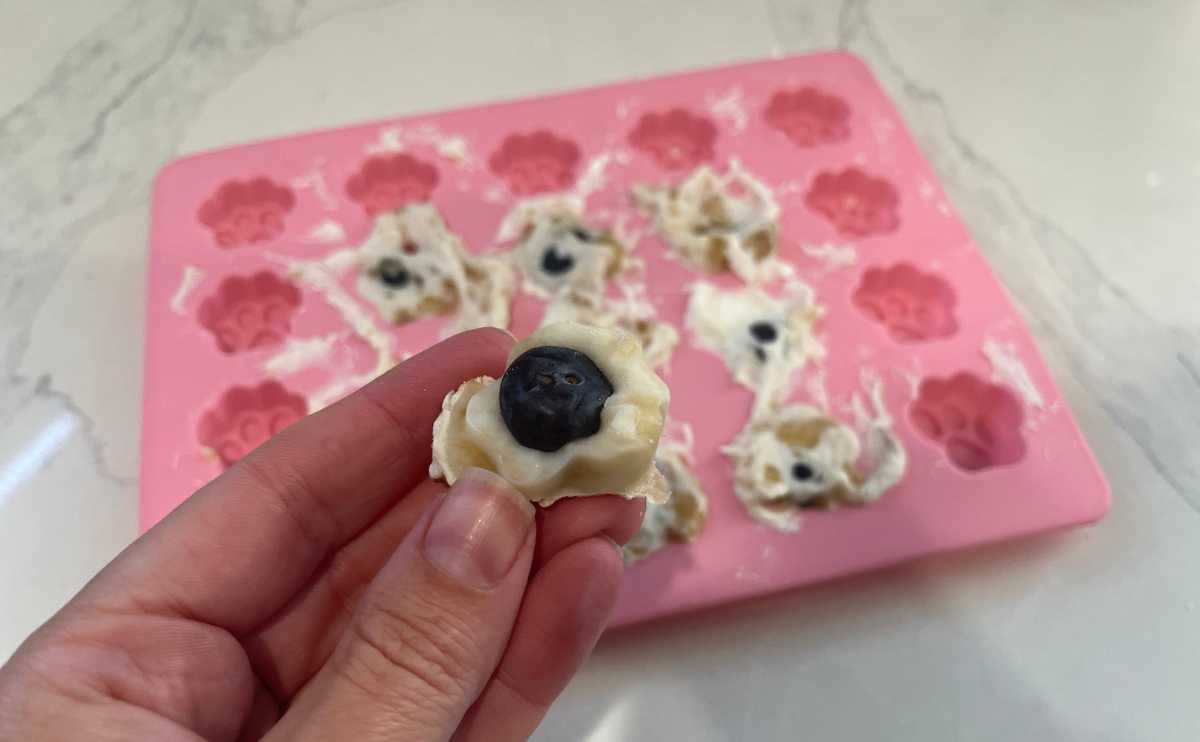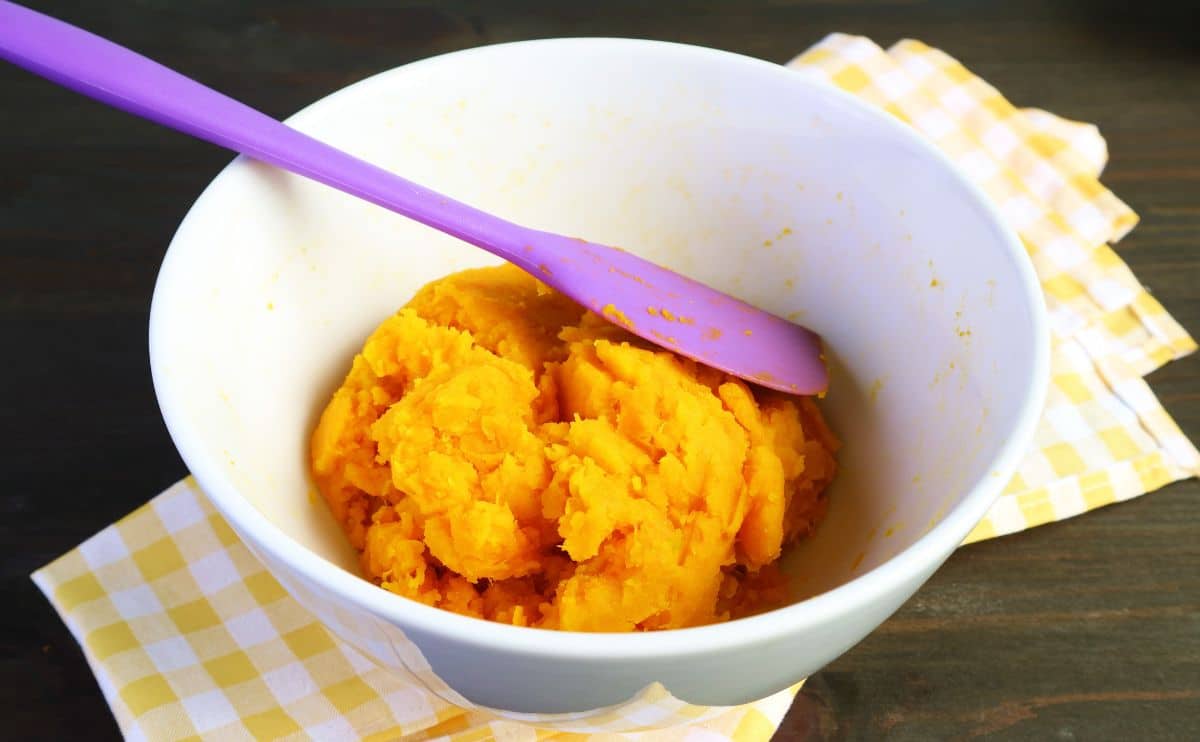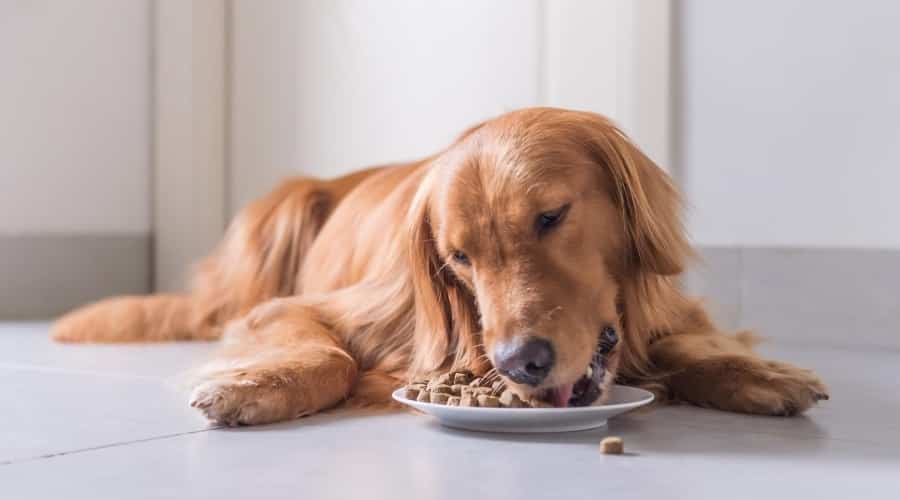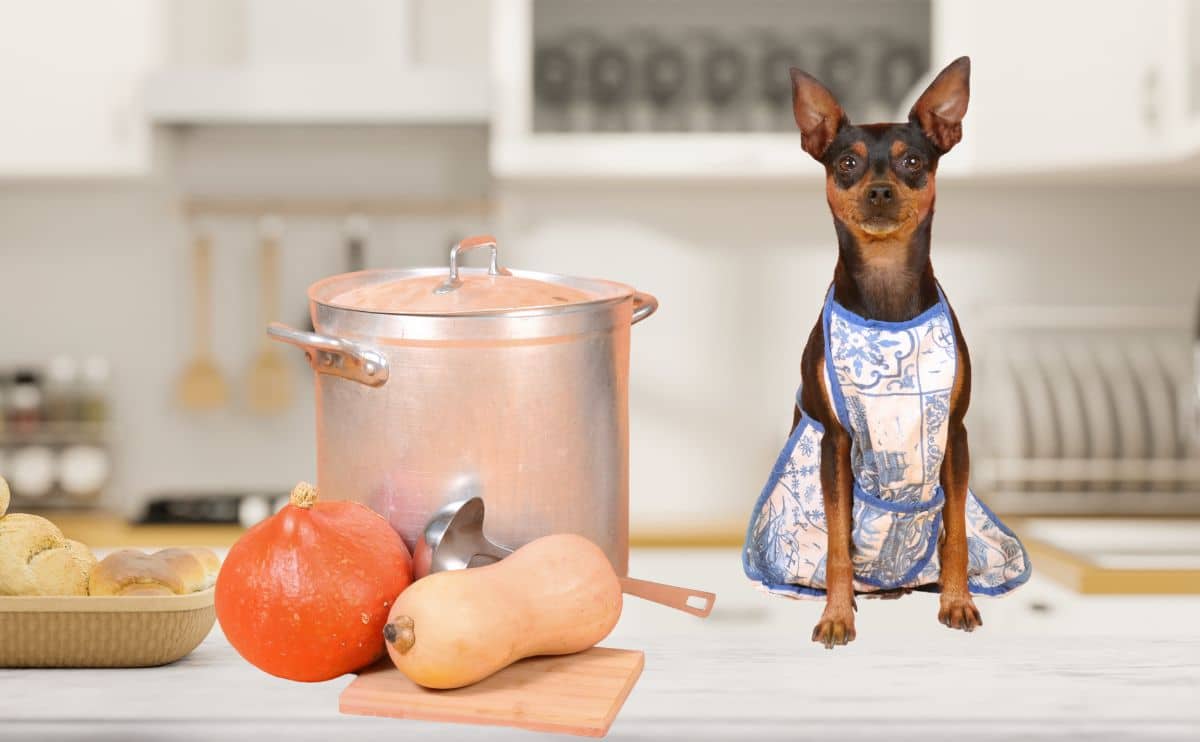Can Dogs Eat Cauliflower? A Vet’s Analysis of Risks and Benefits
When you purchase through links on our site, we may earn a commission. Here’s how it works.
Diets are a tricky business, whether you’re feeding yourself or providing for your family and pets. There are so many options and conflicting advice out there, and everyone has a different opinion.
Table of Contents
There is no single right answer for nutrition (nothing is perfect), but unfortunately, there are many wrong answers. Let’s look at elements of your dog’s diet and what is safe to include.
We know that vegetables are an essential part of a varied diet for both people and dogs, but can cauliflower be appropriate for your dog?
Will Cauliflower Make My Dog Sick?

The good news is that cauliflower is very safe for dogs and is not toxic – it will not make dogs sick. However, as with all parts of a diet, your dog should eat cauliflower in moderation. Eating vast quantities at once might cause a bit of a tummy upset, including diarrhea and gas. But when fed in normal amounts, as part of a balanced diet, there is no danger. Even if a dog were to become unwell after eating a lot of cauliflower, symptoms would usually be short-lived.
As long as cauliflower is clean, it’s safe for dogs to eat. It is also a good choice for most dogs with sensitive digestions or food allergies, as cauliflower is unlikely to cause reactions or intolerances (although every dog is different, so use caution if your dog is very vulnerable to tummy upsets).
If using pre-processed or store-bought cauliflower, it is worth checking that there are no additives or extra ingredients that might be bad for your dog. Plain cauliflower is safe, but additives like onion or garlic may be dangerous for your dog, so check the ingredient list before feeding.
Are The Leaves and Stems Safe for Dogs?
Cauliflower leaves and stems are also very safe for dogs and people. Some people prefer cooking and eating these parts of the plant over the cauliflower head itself. Again, large quantities may cause a bit of a tummy upset, but if fed a reasonable amounts as part of a balanced diet, there should be no problem.
It is worth mentioning that if dogs (especially smaller dogs) swallow large chunks of stem whole, there is a risk of these causing a gut blockage (a bowel obstruction), so avoid feeding large solid pieces when possible.
If your dog has swallowed a large chunk of cauliflower whole and becomes unwell (showing lack of appetite, vomiting, and pain), then contact your local veterinary clinic as soon as possible. The symptoms usually appear within 4 to 24 hours. Stems and leaves are safest when chopped small and cooked, making them softer and easier to digest. But, in general, they are acceptable to feed to your dog.
Is Cauliflower Good for Dogs?

Like humans, dogs are omnivores, so their gut is developed to process many different food types. In fact, dogs require a varied diet for optimal health.
Vegetables like cauliflower provide:
- Vital fiber
- Vitamins (like C and K)
- Minerals (like calcium, potassium, and iron).
These are essential for your dog’s long-term well-being and are present in all parts of the cauliflower plant.
These dietary elements support all parts of your dog’s body, and fiber is also good for gut health. The leaves and stems contain lots of nutritional goodness as well. Cauliflower is relatively filling but low in calories, making it a valuable part of any dog’s weight management plan. If your dog is always looking or begging for food, vegetables can be a good treat to distract them and fill them up without providing empty calories.
How Should I Feed It To My Dog?
Cauliflower can be fed frozen, raw, or cooked – all are beneficial and full of nutrients. It is worth taking your dog’s individual needs and personality into account when choosing which form is best. For example, frozen cauliflower might damage your dog’s teeth if he is likely to crunch on it heavily. In this case, defrosted raw cauliflower might be a better choice.
For small dogs, smaller chunks might be better to avoid the risk of any gut blockage if swallowed whole – bigger dogs can tolerate bigger pieces. For older dogs or those with sensitive tummies, cooked cauliflower might be better, as it is softer and a little easier to digest. All cauliflower should be washed and chopped to a reasonable bite-size for your dog.
Frozen or Raw vs. Cooked Cauliflower
Frozen or raw cauliflower is likely to contain the most nutrients, but these may not be accessible to your dog’s body. This is because the plant material has to be digested to release its nutrients and allow absorption by the gut – but raw plants are very tough to digest. Herbivorous animals must work extremely hard to extract the good stuff from plants. While raw or frozen cauliflower provides the most fiber, it may not allow the greatest nutrient absorption.
Cooking cauliflower breaks down some of the plant’s toughness and allows nutrients to be extracted by the guts more easily. You can also reduce bloating and gas when you cook cauliflower, making it easier to digest. The downside is that heat damage may reduce the total nutrient content. Any method is fine; however, often, it is simplest to go by trial and error, discovering what works best for your dog.
How Much Cauliflower Can They Eat?
In terms of how much cauliflower to feed – remember too much can cause tummy upset and excessive gas, so give the appropriate amount for your dog’s body size. A small dog might just need one or two pieces of cauliflower per day (equivalent to what you might give a very small child). Bigger dogs might eat 4-5 pieces of cauliflower per day (comparable to the amount for a 10-year-old child). Cauliflower should form part of a balanced diet along with many other different vegetables.
Frequently Asked Questions
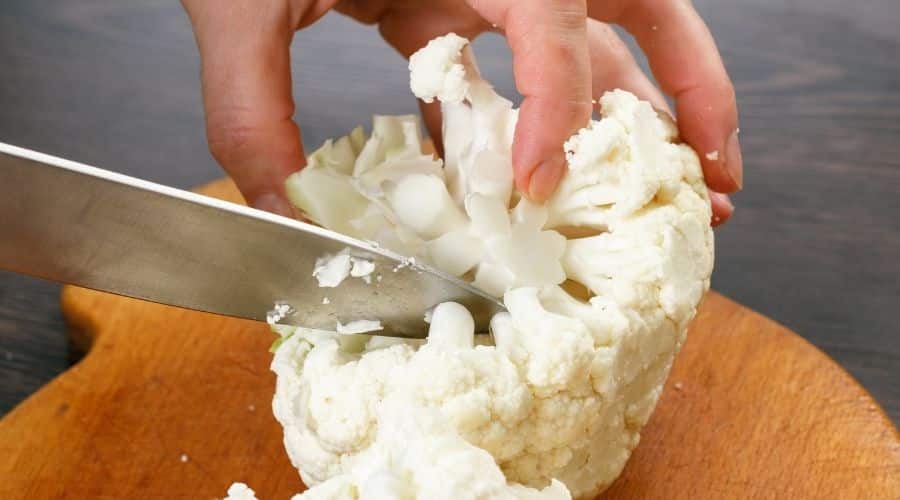
Can cauliflower upset a dog’s stomach?
If your dog consumes cauliflower in large quantities, it could upset their stomach – usually in the form of diarrhea or excessive gas. This can also be true if it is contaminated, even if only from soil.
Large chunks of cauliflower could cause a bowel obstruction in smaller dogs. If you are concerned about your dog, then contact your local veterinary clinic as soon as possible.
Can dogs eat frozen cauliflower?
Frozen cauliflower is safe for dogs to eat, but be careful your dog doesn’t crunch it too hard or swallow big pieces whole. Frozen produce can damage teeth if dogs attack them too heavily, and big chunks might cause a gut obstruction. If you are in any doubt, allow the cauliflower to defrost first.
Can dogs eat cauliflower rice?
Cauliflower rice is usually grated or processed cauliflower, so this should be absolutely fine to add to your dog’s diet. If you are using store-bought or commercial cauliflower rice, just ensure no extra ingredients have been added (such as onion or garlic) that might be toxic for dogs. The rice itself is safe for dogs but may cause bloating or other upset stomach symptoms if you feed a large amount.
What vegetables can a dog eat?
Dogs can safely eat cauliflower, broccoli, Brussels sprouts, carrots, celery, green beans, peas, cucumber, sweet potatoes, potatoes, and sweet corn (but not on the cob – the corn cobs can be dangerous). All of these are nutritious but low-calorie options for your dog that can be really useful and healthy as part of a balanced diet. In general, you can feed washed vegetables raw or cooked but, if in doubt, it’s worth cooking them, just in case.
Are there any vegetables a dog shouldn’t eat?
Dogs should not be allowed to eat anything from the allium family (i.e., onions, garlic, leeks, shallots) in any form. Most other vegetables are fine. Some fruits are hazardous for dogs, including avocado and grapes (including raisins). Also, beware of fruit pits as they can be dangerous. Do not let your dog eat pits from apples or cherries, but the flesh is fine. And if you want to know each and every type of produce to avoid, here’s a comprehensive list of fruit and vegetables that are not dog-friendly.
Final Thoughts
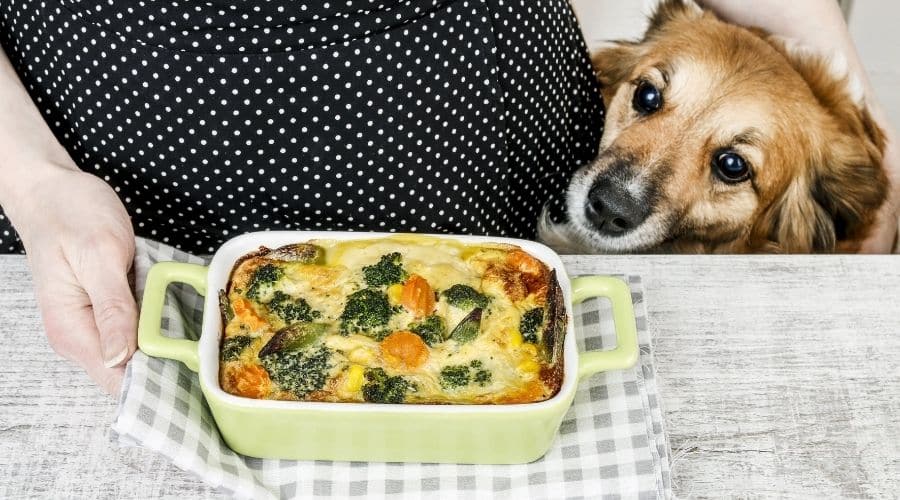
Dogs are omnivores like us and require a regular, varied, and balanced diet for optimal whole-body, long-term health. Vegetables like cauliflower are safe to feed to dogs in moderation. Veggies are a really important part of the diet, providing lots of fiber, vitamins, and minerals without a high-calorie count.
Plain cauliflower in any form is a safe and healthy option to include in your dog’s diet. It can also be a great help for dogs trying to lose weight. Always prepare cauliflower in a suitable form for your dog, and don’t feed too much. Other than that, feel free to try incorporating vegetables like cauliflower regularly for mealtime.
